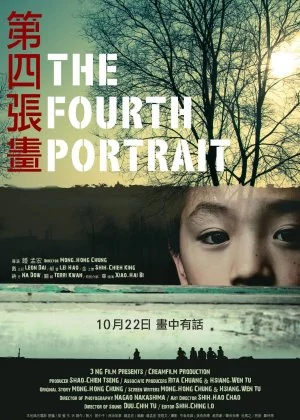The Fourth Portrait

While Taiwanese cinema isn't the most sprawling well of creativity, it is the perfect breeding ground for first-grade arthouse dramas (Juliets, Eternal Summer, Island Étude). Stilted, subdued dramas are the main export product of the Taiwanese film industry and The Fourth Portrait [Di Si Zhang Hua] definitely belongs to the best Taiwan has on offer. If you're looking for a slow-paced yet emotionally powerful and visually stunning film, look no further.
![screen capture of The Fourth Portrait [Di Si Zhang Hua]](/thumbs/img/articles/1200xauto/4th-portrait-1.webp)
To make it clear from the start, The Fourth Portrait is not a plot-driven drama. Rather it's a vignette of small events in a boy's life, interwoven with visual poetry. There's an overarching backstory where 10-year-old boy Xiang (who has lost his father to a fatal disease) is reunited with his mother, but this is merely a basic setup, meant as a hook for individual scenes. Some scenes and events might seem a little too detached at first, but throughout the length of the film they do manage to create a very delicate and beautiful portrait of the main character.
Xiang doesn't have a very easy life. His mother abandoned him at a very young age, leaving him to live with his father. When his dad dies Xiang tries to manage on his own for a while, but he is quickly picked up by an old man living in the neighborhood. The old man reunites Xiang with his mother and the both of them decide to make the best of the situation. She has already remarried though and Xiang's stepdad is not too fond of having another mouth to feed. Then there is the mystery of Xiang's older brother, someone who only seems to be alive in Xiang's memories, only adding more confusion to the little boy's life.
While this sounds like ideal material for pulling a shameless tearjerker, Chung keeps his film remarkably light-hearted and frivolous. Sure it isn't without its darker moments, sometimes handling rather grim and delicate issues, but the overall atmosphere is quite upbeat and soothing. It's a wonderful balance that is mostly fueled by Chung's exquisite styling and his ability to take the edge of some of the more questionable actions of the characters.
![screen capture of The Fourth Portrait [Di Si Zhang Hua]](/thumbs/img/articles/1200xauto/4th-portrait-2.webp)
The Fourth Portrait is a true visual masterpiece. It's visually delicate, subtle and controlled, betraying an eye for perfection that is virtually unmatched in this line of cinema (which is quite a compliment). In that sense it may not be all that in your face, on the other hand Chung is not ashamed to spend a whole scene exploring the life of the young boy purely on a visual level. This all results in a fair few magnificently orchestrated moments that set out to create a wonderful atmosphere, providing the film with a serious emotional boost.
The soundtrack emits a likewise quality. In essence, it is not all that different from many other similarly constructed films, but somehow it feels more distinguished. Just that little classier than its competitors. The music also flows very well with the visuals, creating a perfect blend of audiovisual splendor that drives the film to some exceptional heights.
The acting is traditionally subdued. There isn't too much dialogue and what there is doesn't necessarily convey the actual emotions of the characters. Most of the acting is done in silence, translated through physical actions and cinematic gestures rather than words. The quality of the acting is all around great though. Especially Bi Xiao-Hai does a great job playing Xiang, not a very easy task for such a novice actor.
![screen capture of The Fourth Portrait [Di Si Zhang Hua]](/thumbs/img/articles/1200xauto/4th-portrait-3.webp)
If you go around looking for other reviews you'll quickly run into a few who'll criticize the film for being aesthetically boring and utter lack of emotion. If you don't pick up the audiovisual, abstract layer of emotions present here than these critiques are no doubt understandable, but considering the poetic undertones of the film it pains me to read such comments. The Fourth Portrait is anything but boring and cold-hearted, quite the contrary really. It just lacks the sentimentality and emotional loudness often found in Western dramas.
As for the laid-back and somewhat vague structure of the film, it reminded me a lot of Á la Verticale de l'Été, which features a similar free-form approach, resulting more in a collection of impressions (hence the four portraits) rather than a fully realized and finished storyline. Some plot points reach a conclusion, others don't, other scenes don't even involve any plot points. Sure, this kind of cinema is not for everyone, but if you like these slice-of-life kinda films than The Fourth Portrait is a pretty safe bet.
No doubt this is one of the best films I've seen this year. The Fourth Portrait is powerful, poetic, lush, atmospheric and ultimately gripping. It's not unique or wildly different, but a perfect execution of a popular genre, lifting the film far above the competition. It might not be a good entry film as the film isn't all that accessible, but if you've been looking for another prime example of stilted Asian drama, Chung has made just the film for you. Absolutely recommended for those who know what they're getting themselves into.